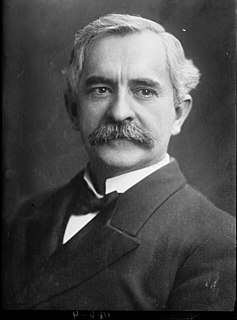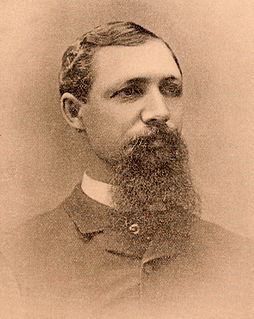A Quote by Karl Barth
Sin scorches us most after it comes under the scrutinizing light of God's forgiveness and not before
Related Quotes
Jesus' forgiveness of our sins is the single most impactful part of the gospel, and when we forgive others who sin against us we're shining his light most brilliantly. Every act of forgiveness brings a touch of Heaven to Earth, and it makes the gospel look as otherworldly and supernatural as it is. Forgiveness is constructed in the DNA of the persecuted.
This doctrine of forgiveness of sin is a premium on crime. Forgive us our sins means Let us continue in our iniquity. It is one of the most pernicious of doctrines, and one of the most fruitful sources of immorality. It has been the chief cause of making Christian nations the most immoral of nations. In teaching this doctrine Christ committed a sin for which his death did not atone, and which can never be forgiven. There is no forgiveness of sin. Every cause has its effect; every sinner must suffer the consequences of his sins.
Our inhuman enemy inspires the thought that God loves mankind, and that He quickly forgives this sin. But when we observe the guile of demons, then we see that after the commission of the sin, they suggest to us that God is a righteous and implacable Judge. The first they say in order to lead us to sin, the second, in order to weigh us down in despair.
It is impossible for a man to be freed from the habit of sin before he hates it, just as it is impossible to receive forgiveness before confessing his trespasses. Ignatius
If I cast up a confessed, repented, and forsaken sin against another, and allow my remembrance of that sin to colour my thinking and feed my suspicions, then I know nothing of Calvary love.
Those who understand the cross increasingly see their sin as God does, and therefore begin to feelabout sin as does God. We begin to mourn for and hate it. In other words, at the cross God becomes larger and we become smaller. This separation is at the heart of the fear of God. This "fear" opens God's wisdom to us because only in light of God's immensity can I see the importance of living for the right end, his glory. And only in the light of my smallness can I feel overawed by the means he used to save me, his cross.
Sin is: before God, or with the conception of God, in despair not to will to be oneself, or in despair to will to be oneself. Thus sin is intensified weakness or intensified defiance: sin is the intensification of despair. The emphasis is on before God, or with a conception of God; it is the conception of God that makes sin dialectically, ethically, and religiously what lawyers call 'aggravated' despair.
When the Bible uses the words salvation, Savior, and save, it's speaking of the total work of God in bringing people from a state of death - hopeless separation from God - to a state of everlasting life through the forgiveness of sin, based on the merits of Christ Jesus who died and rose again. Saving us is the greatest and most concrete demonstration of God's love, the definitive display of His grace throughout time and eternity.
We've fallen for the devil's lie. His most basic strategy, the same one he employed with Adam and Eve, is to make us believe that sin brings fulfillment. However, in reality, sin robs us of fulfillment. Sin doesn't make life interesting; it makes life empty. Sin doesn't create adventure; it blunts it. Sin doesn't expand life; it shrinks it. Sin's emptiness inevitably leads to boredom. When there's fulfillment, when there's beauty, when we see God as he truly is-an endless reservoir of fascination-boredom becomes impossible.
We do not have to make ourselves suffer in order to merit forgiveness. We simply receive the forgiveness earned by Christ. 1 John 1:9 says that God forgives us because He is ‘just.’ That is a remarkable statement. It would be unjust of God to ever deny us forgiveness, because Jesus earned our acceptance! In religion we earn our forgiveness with our repentance, but in the gospel we just receive it.






































